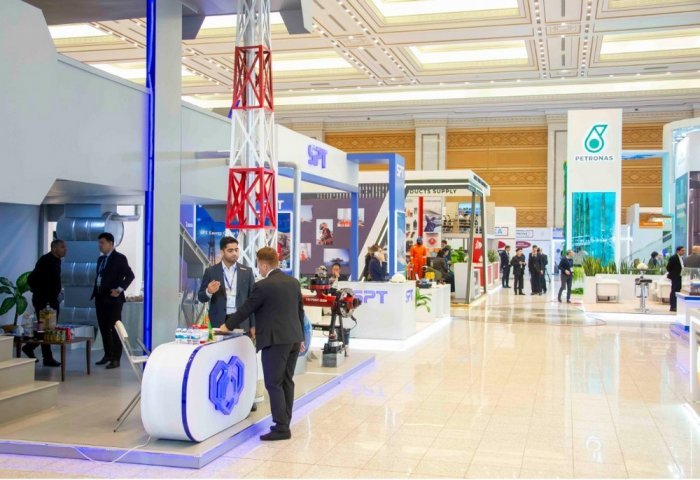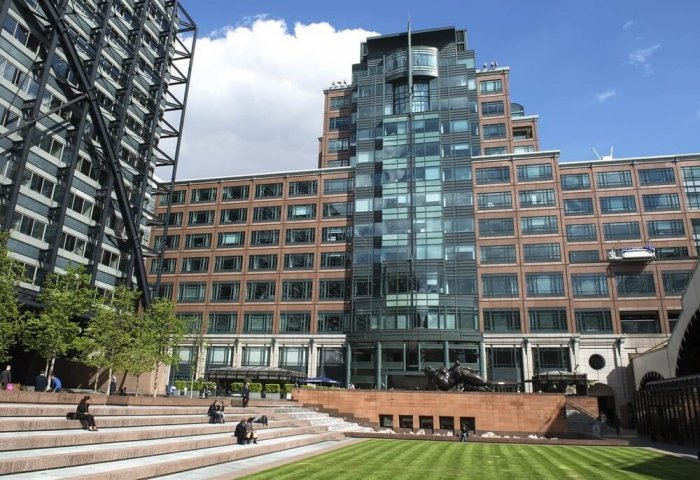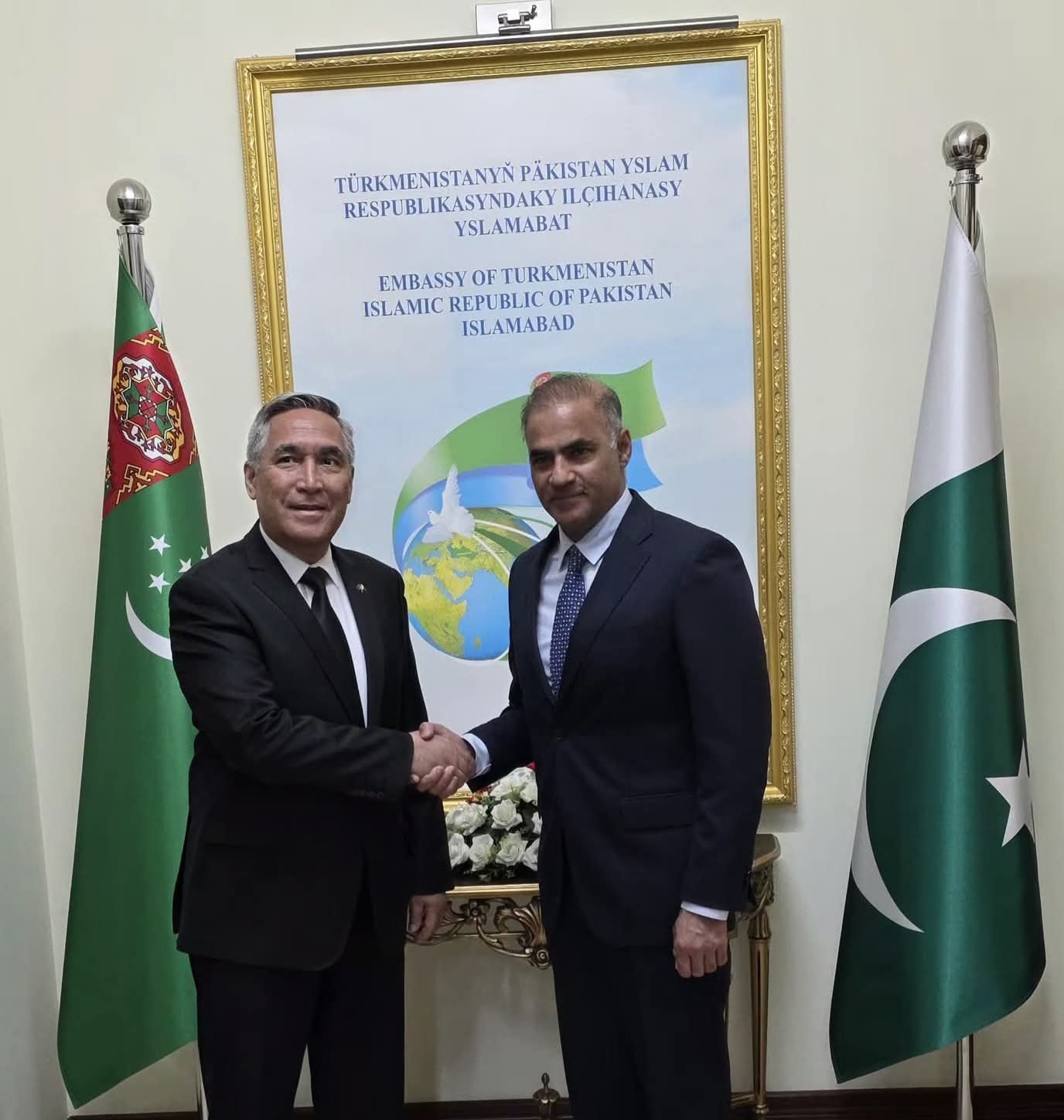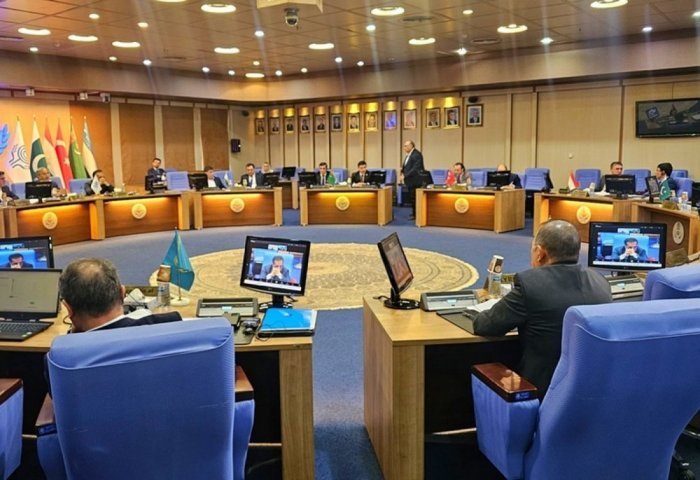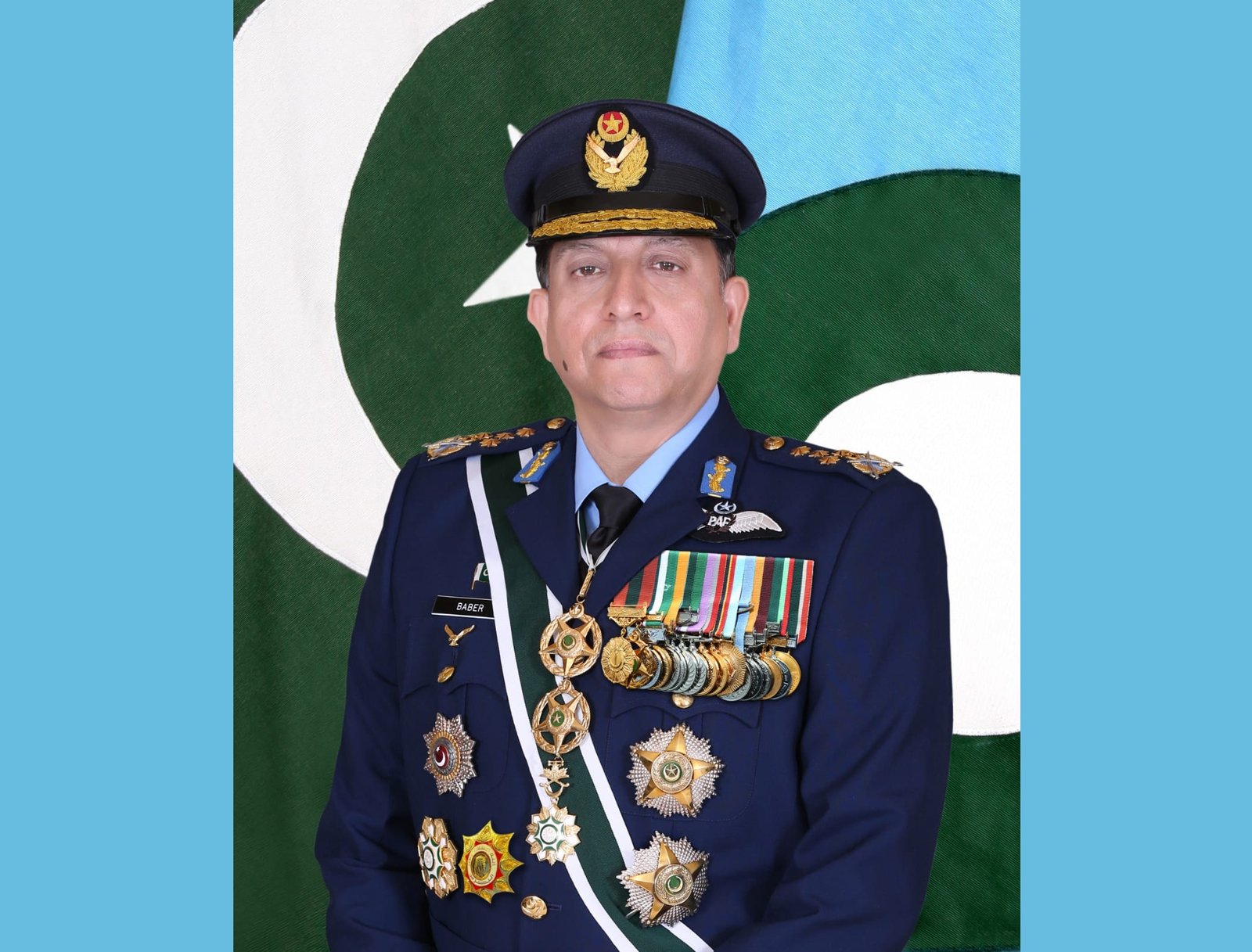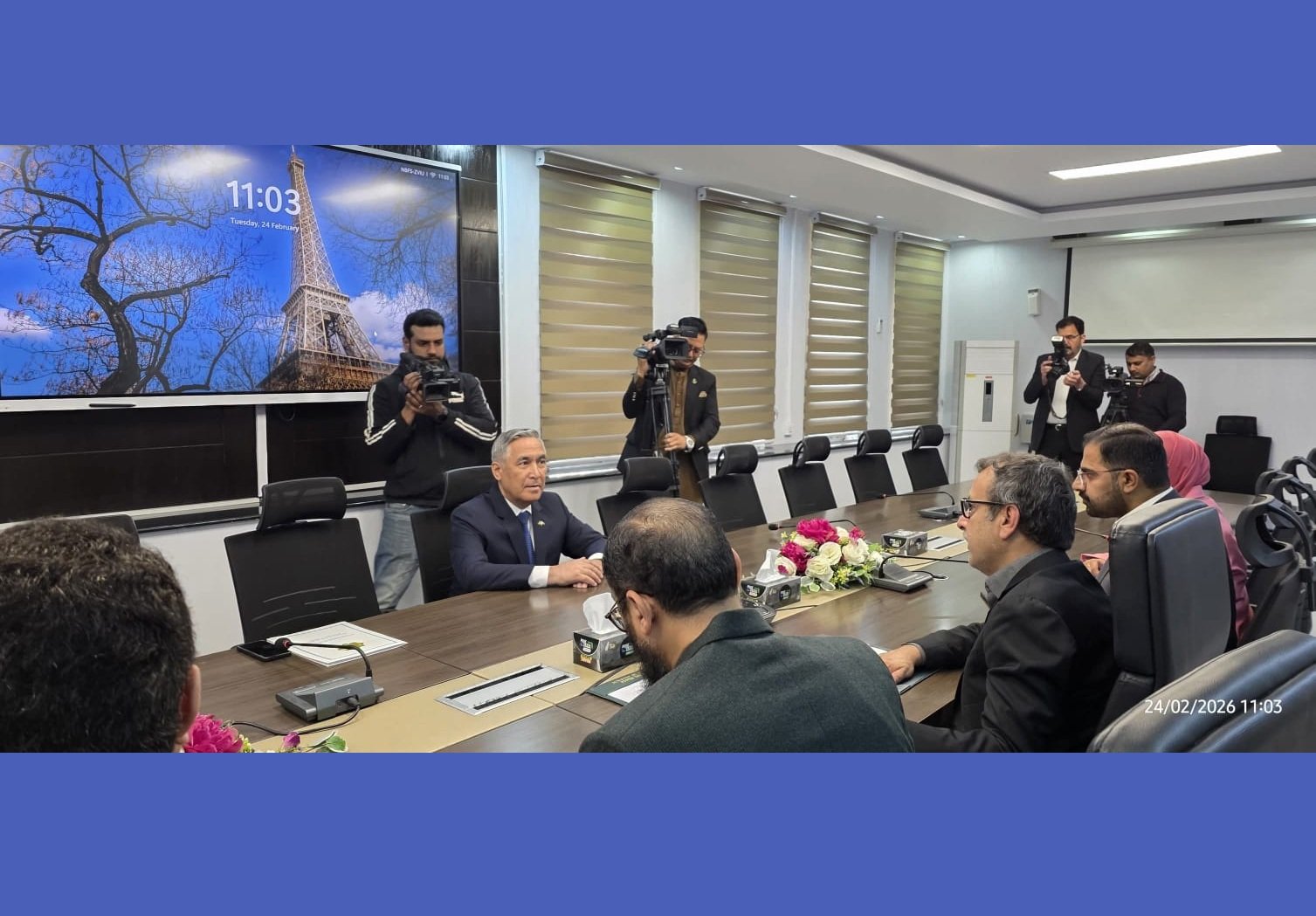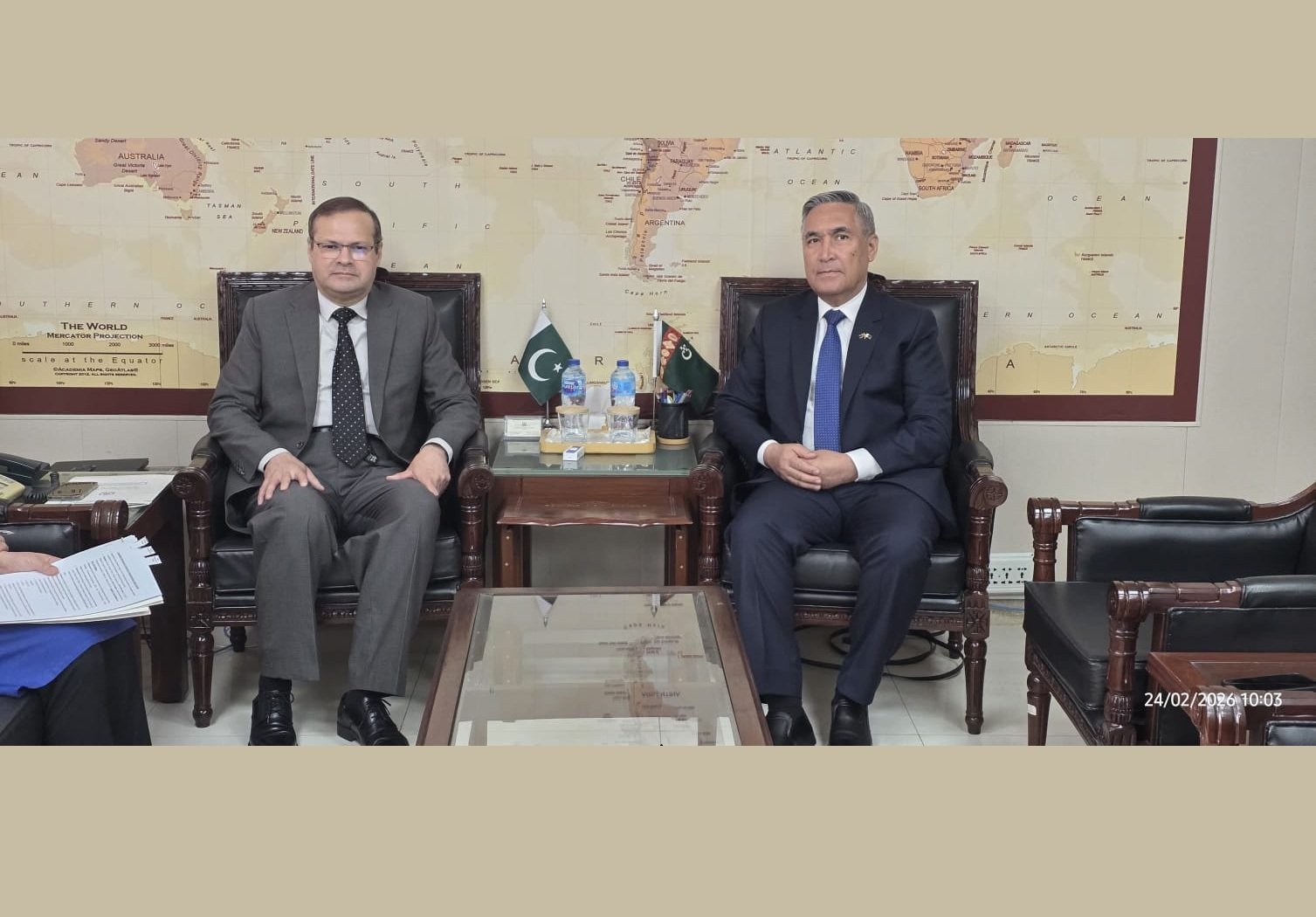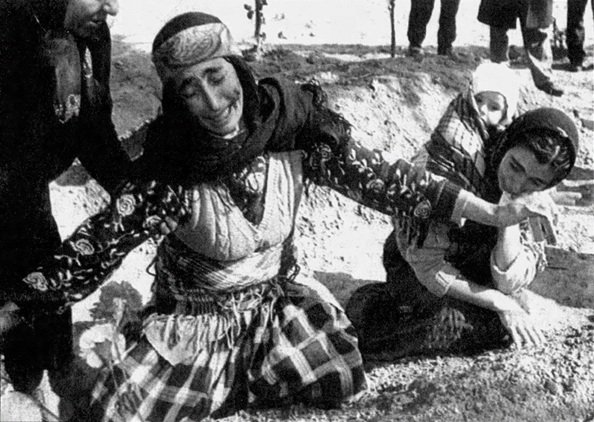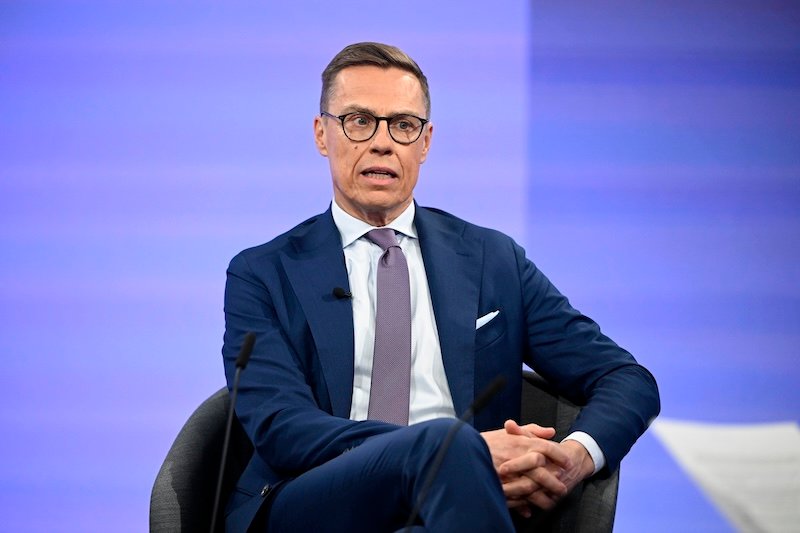In a compelling conversation with Mr. Muhammad Ali Pasha, Turkmenistan’s Ambassador to Pakistan, H.E. Atadjan Movlamov shed light on the deep-rooted and forward-looking ties between the two nations. He outlined a multidimensional partnership anchored in political trust, economic collaboration, and shared cultural values. Ambassador Movlamov emphasized the untapped potential in trade, energy, and logistics, spotlighting the TAPI pipeline as a game-changing regional initiative.
He praised Pakistan’s strategic importance in enhancing regional connectivity and transit access. The Ambassador discussed meaningful progress in educational cooperation and university partnerships. Cultural diplomacy and people-to-people exchanges were highlighted as key drivers of mutual understanding.
He reiterated Turkmenistan’s principle of neutrality as a foundation for peaceful regional engagement. Inviting Pakistani investors and youth, he described Turkmenistan as a land of opportunity. The Ambassador concluded with a powerful vision for strengthened bilateral ties, built on shared prosperity, peace, and a united regional future.
Question No. 1: Excellency, how would you describe the current state of bilateral relations between Turkmenistan and Pakistan? What are the main pillars of this partnership?
Answer:
The bilateral relations between Turkmenistan and Pakistan are characterized by mutual respect, historical affinity, and a shared vision for regional peace and prosperity. Our partnership rests on several solid pillars: political dialogue, economic cooperation, energy connectivity, cultural affinity, and a common interest in regional stability. Both countries maintain regular high-level exchanges and support each other in multilateral platforms, including the United Nations, ECO, and OIC.

Question No. 2: Trade between Turkmenistan and Pakistan has room to grow. What specific sectors or industries do you see as having the most potential for increased bilateral trade?
Answer:
Indeed, there is considerable untapped potential in our trade relations. Priority sectors include energy, textiles, agriculture, pharmaceuticals, and construction materials. Turkmenistan is particularly interested in developing logistics corridors and trade infrastructure that would facilitate smooth transit of goods. The Turkmen side welcomes the interest of Pakistani entrepreneurs and chambers of commerce in expanding trade and investment cooperation.
Question No.3: The TAPI (Turkmenistan–Afghanistan–Pakistan–India) gas pipeline has been a cornerstone of regional energy cooperation. Could you kindly update us on its current status and prospects?
Answer:
The TAPI project remains a strategic initiative of immense importance, not only for the countries involved but also for the broader region. Turkmenistan has already completed the pipeline section on its territory and continues to work closely with partner countries to ensure the timely and secure implementation of the remaining segments. The project embodies our commitment to regional integration, energy security, and sustainable development. I would like to highlight that in September 2024, the construction of the Serhetabat–Herat section of the TAPI pipeline officially commenced. And we are currently working to finalize a number of pending agreements with the Government of Pakistan to further advance this strategic project.
Question No.4: What role do you see for Pakistan in Turkmenistan’s broader regional strategy, particularly in terms of connectivity and transit routes?
Answer:
Pakistan plays a vital role in Turkmenistan’s vision of a connected Eurasian region. Through projects like TAPI, the Lapis Lazuli Corridor, and the development of multimodal transit routes, we see Pakistan as a key partner in bridging Central Asia with South Asia and beyond. Access to Pakistani seaports also offers significant opportunities for Turkmen exports, and we look forward to deepening cooperation in transport and logistics.
Question No. 5: Could you share your views on how cultural exchange and people-to-people contacts between Turkmenistan and Pakistan can be enhanced? Are there any upcoming cultural events or initiatives planned?
Answer:
Turkmenistan places great importance on cultural diplomacy. We believe that deepening cultural and humanitarian ties serves as a foundation for mutual understanding and lasting friendship. The Embassy regularly organizes cultural events, exhibitions, and academic exchanges. We also encourage collaboration between universities, artists, and youth organizations of both countries.
Question No. 6: In terms of education and academic cooperation, are there any scholarship programs or university partnerships between Turkmenistan and Pakistan?
Answer:
Yes, education is a promising area of cooperation. MoUs were signed between the Turkmen State Institute of Economics and Management and COMSATS Institute of Information Technology of Pakistan, as well as between the Institute of International Relations of the Ministry of Foreign Affairs of Turkmenistan and the Center for Policy Studies of COMSATS University Islamabad. I find it appropriate to note that in May of this year, the 3rd Open International Online Olympiad in the discipline of “World Economy” was held at the Turkmen State Institute of Economics and Management. Students from COMSATS University Islamabad also took part in this Olympiad alongside participants from many other countries and achieved honorary positions.
We are exploring mechanisms to expand scholarship programs and promote institutional partnerships. There is growing interest in language studies, joint research, and faculty exchange programs, and we are confident this dimension will continue to grow.
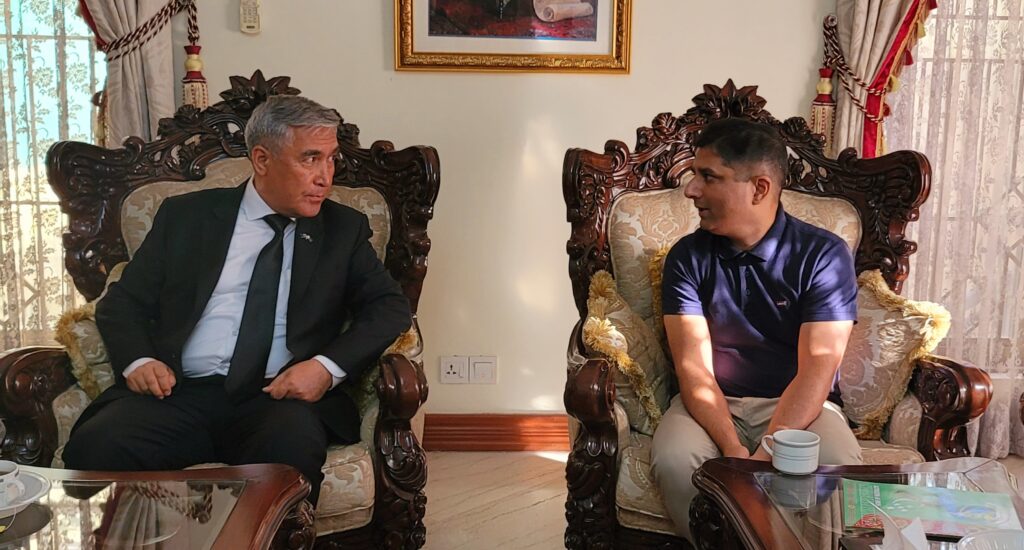
Question No. 7: Turkmenistan maintains a policy of neutrality. How does this principle shape its foreign policy and engagement with countries like Pakistan and others in the region?
Answer:
Permanent neutrality is the cornerstone of Turkmenistan’s foreign policy, recognized and supported by the United Nations. This status allows us to act as a reliable and impartial partner in international affairs. It enables us to focus on peaceful dialogue, economic cooperation, and mutual respect with all countries, including Pakistan. Neutrality fosters trust and opens the way for constructive initiatives that serve the collective good.
Question No. 8: What message would you like to convey to Pakistani investors and youth looking to explore opportunities in Turkmenistan?
Answer:
I would warmly encourage Pakistani investors and youth to explore the dynamic and promising opportunities in Turkmenistan. Our country offers a stable business environment, attractive investment incentives, and strategic access to regional markets. We particularly welcome projects in energy, infrastructure, information technology, and agriculture. Youth exchange and innovation collaboration are also areas of future growth.
Question No. 9: Lastly, what is your vision for the future of Turkmenistan–Pakistan relations, and how can both nations work together to promote peace, development, and regional stability?
Answer:
My vision is one of deeper partnership built on mutual confidence, shared development goals, and regional harmony. Turkmenistan and Pakistan, by working together, can contribute significantly to a more interconnected and peaceful region. Whether through energy cooperation, infrastructure development, or cultural and academic ties, our two countries have the potential to shape a brighter future for generations to come.
Note: This article is the intellectual property of the writer. If any content will be republished without the consent of author then it will be consider as forgery and fraud.
Owner and Patron-In-Chief of “The Gulf Observer”, Chairman “The Gulf Observer Research Forum”, Foreign Affairs Expert, Analyst, Writer and Poet.

